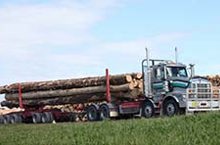
The Environmental Defence Society (EDS) says that the National Environmental Standards for Plantation Forestry (NES-PF) are failing to protect the coastal marine environment from the significant adverse effects of sedimentation associated with plantation forest harvesting. This has been starkly apparent in Tairāwhiti, but it is a nationwide problem.
“The NES-PF permits harvesting and associated earthworks of plantation forestry on erosion prone land. We have filed legal declarations in the Environment Court challenging the lawfulness of that regime, which we consider is a breach of the Resource Management Act 1991,” says EDS CEO Gary Taylor.
“A major cause of marine sediment is from harvesting activities undertaken by plantation forestry operations. This is particularly so during the approximately seven year ‘window of vulnerability’ post clear fell harvesting on high erosion risk land.
“During and after high rainfall events, which are becoming more regular, steep land that has recently been harvested is more susceptible to landslide and erosion. This generates sediment that runs off into the receiving marine environment, smothering aquatic life.
“The Government is currently reviewing the NES-PF to address permanent exotic carbon forests, but the permissive regime for harvesting is outside of the terms of reference. This makes no sense. The NES-PF is not fit-for-purpose for managing plantation forestry harvesting activities, especially in this climate-changing world which is set to deliver bigger and more frequent storms.
“It’s time for the plantation forestry sector to start internalising the costs of its significant adverse effects, instead of making downstream communities and environments pay,” Mr Taylor concludes.










